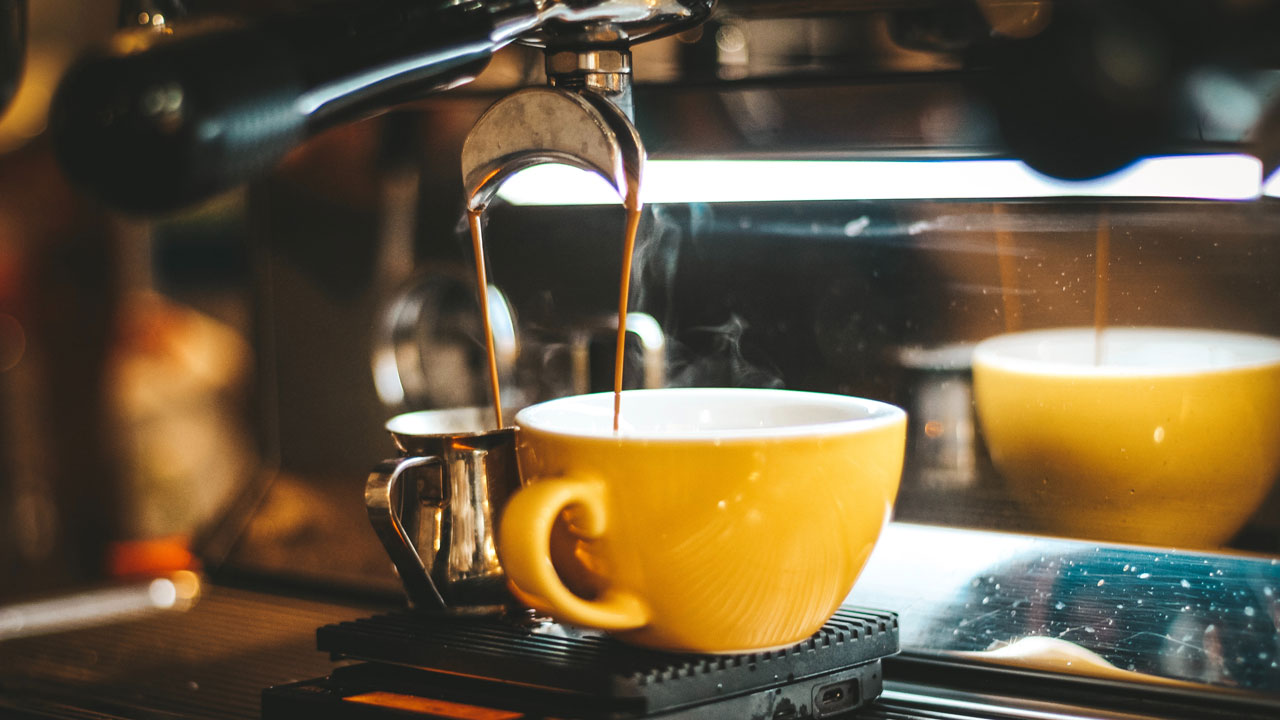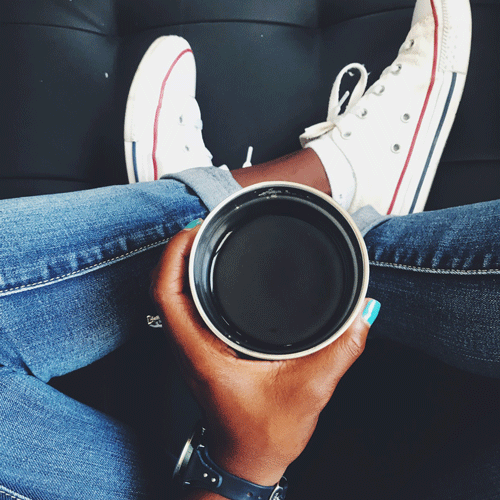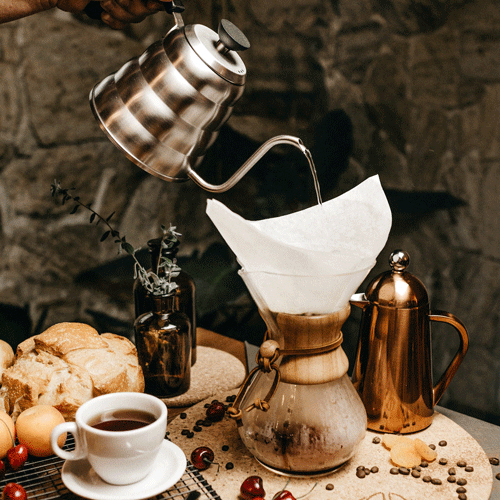5 tipps für einen nachhaltigen kaffee-konsum
8 Stunden im Büro ohne Kaffee? Für viele kaum vorstellbar. Das Heißgetränk schmeckt gut, macht wach und soll sogar gesundheitliche Vorteile mit sich bringen. Allerdings: Wer nicht möchte, dass der eigene Konsum zulasten der Mitmenschen und Umwelt geht, sollte folgende fünf Tipps beherzigen.

Was kann an Kaffee denn problematisch sein?
Vor allen Dingen: Die Arbeitsbedingungen der Kleinbäuerinnen und Kleinbauern, die – trotz wachsender Nachfrage – seit Jahren weniger Geld für ihre Ernte erhalten. Die Mehrheit der Familien, die ihren Lebensunterhaltet durch den Kaffee-Anbau bestreitet, lebt unterhalb der Armutsgrenze. Wie kann das sein? Mehr dazu findest du im Beitrag Schwarzer Kaffee mit grünem Gewissen.
Aber auch die Art und Weise, wo und wie wir Kaffee trinken, kann Auswirkungen auf die Umwelt haben: Coffee to go? Kaffeekapseln? Beides hat aus gutem Grund keinen guten Ruf. Welche Alternativen es gibt, erfährst du hier:
1. Auf die richtigen Siegel achten
Inzwischen gibt es viele Siegel, die bessere Arbeitsbedingungen erreichen möchten – sie stammen teilweise jedoch von den Firmen selbst und haben wenig bis keinen Effekt.
#Glaubwürdig ist dagegen das Fairtrade-Siegel, das den Kleinbäuerinnen und Kleinbauern einen Mindestpreis garantiert. Das schafft nicht nur Einkommen, sondern auch Planungssicherheit. Darüber hinaus fördert Fairtrade den Umstieg auf eine ökologische Landwirtschaft – sehr viele faire Kaffeesorten sind gleichzeitig bio-zertifiziert.
Mehr zum Fairtrade-Siegel findest du unter Wie fair ist Fairtrade?
Noch besser als der Einkauf im Supermarkt, selbst mit Fairtrade-Siegel, bleibt der Einkauf im Weltladen. Der Anteil, der bei den Bäuerinnen und Bauern ankommt, ist noch höher und wird begleitet von weiteren unterstützenden Maßnahmen und langen Handelsbeziehungen.
Das Bio-Siegel dagegen sagt leider nichts über die Arbeitsbedingungen der Kleinbäuerinnen und Kleinbauern aus. Es ist zwar sicherlich ein Schritt in die richtige Richtung, aber gerade bei Kaffee nicht ausreichend.
2. Fairtrade: auch unterwegs!

Wir trinken unseren Kaffee nicht nur zu Hause, sondern auch im Büro, im Café und Restaurant. Konsequenterweise sollten wir also auch dort auf das Fairtrade-Siegel achten.
Am Arbeitsplatz ist die spontane Umsetzung eventuell schwierig – viele Chef:innen sind jedoch offen für Verbesserungsvorschläge der Belegschaft und können eventuell von fairem Kaffee überzeugt werden.
Auch immer mehr Cafés und Restaurants bieten fair gehandelten Kaffee an. Wo das in deiner Stadt möglich ist, lässt sich meist mit einer kurzen Internetrecherche herausfinden. Meist lohnt es sich, diese Orte zu entdecken.
3. Alternativen wahrnehmen: Lust auf Tee oder Lupinen?
Ein kompletter Verzicht auf Kaffee hilft den anbauenden Ländern nicht – sie benötigen ja die Einnahmen.
Aus ökologischer Sicht kann es aber sinnvoll sein, den Konsum zu reduzieren und lokale Alternativen auszuprobieren.
Denn der Anbau von Kaffee bringt gleich mehrere ökologische Schwierigkeiten mit sich: Der Anbau findet fast immer auf gerodeten Waldflächen statt, die Bohnen müssen zunächst aus Brasilien und anderen Ländern entlang des Äquators nach Deutschland verschifft werden und sie benötigen sehr viel Wasser in der Herstellung: Um eine Tasse Kaffee herzustellen, werden rund 140 Liter Wasser verbraucht. Das ist vor allem dann gravierend, wenn im Produktionsland Wassermangel herrscht. (Mehr zum Thema Virtuelles Wasser findest du im Blogartikel: Virtuelles Wasser: Unser unsichtbarer Verbrauch).
Wer den eigenen Konsum daher reduzieren möchte, kann auf Alternativen umsteigen. Eine regionale Möglichkeit ist dabei Lupinenkaffee. Firmen wie z.B. die Wolfsbohne stammen aus Deutschland, verarbeiten lokal gewachsene Hülsenfrüchte und unterstützen oftmals bio-zertifizierte Betriebe. Geschmacklich ist der Unterschied zu “richtigem” Kaffee mittlerweile erstaunlich gering.
4. Auf Kaffeekapseln verzichten
Nur ein kleiner Teil des Kaffees wird hierzulande in Form von Kapseln verkauft – und dennoch summieren sich diese auf rund 3,5 Millionen Stück im Jahr! Kaffeekapseln bestehen meist aus Aluminium; das größte Problem dabei ist die energieaufwändige Herstellung.
Einige Marken sind inzwischen auf biologisch abbaubare Kapseln umgestiegen. In aller Regel dauert deren Zersetzungsprozess jedoch recht lange, so dass sie nicht in die Bio-Tonne gehören, sondern in den Restmüll. Dort werden sie verbrannt, die Rohstoffe gehen verloren.
Wer auf Kapseln nicht verzichten kann, sollte daher beim Hersteller sowie beim Abfallwirtschaftsbetrieb des Landkreises nachhaken, wo und wie die Entsorgung richtig abläuft. Alternativ können auch wiederverwendbare Kapseln eine Option sein.
Am nachhaltigsten ist es jedoch, auf Kaffeekapseln gänzlich zu verzichten – das spart Ressourcen, Energie zur Herstellung und bei der Entsorgung.

5. Auf To-Go-Becher verzichten
Seit Juli 2021 sind Einwegbehältnisse, die (u.a.) aus Plastik bestehen, ohnehin verboten. Weiterhin erlaubt sind Pappbecher ohne Plastikbeschichtung – das ist besser, aber auch noch nicht das Ziel. Rund 2,8 Milliarden Einwegbecher werfen wir Deutschen jedes Jahr in den Müll, nach nur wenigen Minuten Nutzung.
Wie können Alternativen aussehen?
– Kaffee selber brühen & im Thermobecher mitnehmen
– das deutschlandweite Pfandsystem “Recup” nutzen oder eine lokale Alternative (z.B. den FreiburgCup)
– den Kaffee nicht “to go” sondern im Café selbst genießen
Schwarzer Kaffee mit grünem Gewissen
Kaffee ist aus unserem Alltag nicht wegzudenken. Wer Wert auf Nachhaltigkeit legt – ökologisch wie sozial -, sollte daher zu Hause und unterwegs auf fair gehandelten Kaffee setzen sowie auf -kapseln oder Mehrwegbecher verzichten. Auch Alternativen wie Tee oder Lupinenkaffee können für Vieltrinker eine Option sein.
Quellen anzeigen
- https://suedwind-institut.de/files/Suedwind/Publikationen/2020/2020-01%20Studie%20Auf%20ein%20T%C3%A4scchen%20Die%20Wertsch%C3%B6pfungskette%20von%20Kaffee.pdf
- https://de.statista.com/infografik/18133/verbrauch-von-einwegbechern-in-deutschland/
- https://nachhaltig-sein.info/privatpersonen-nachhaltigkeit/virtuelles-wasser-die-wahren-wasserfresser-ein-swimmingpool-fur-ein-kilo-kaffee
